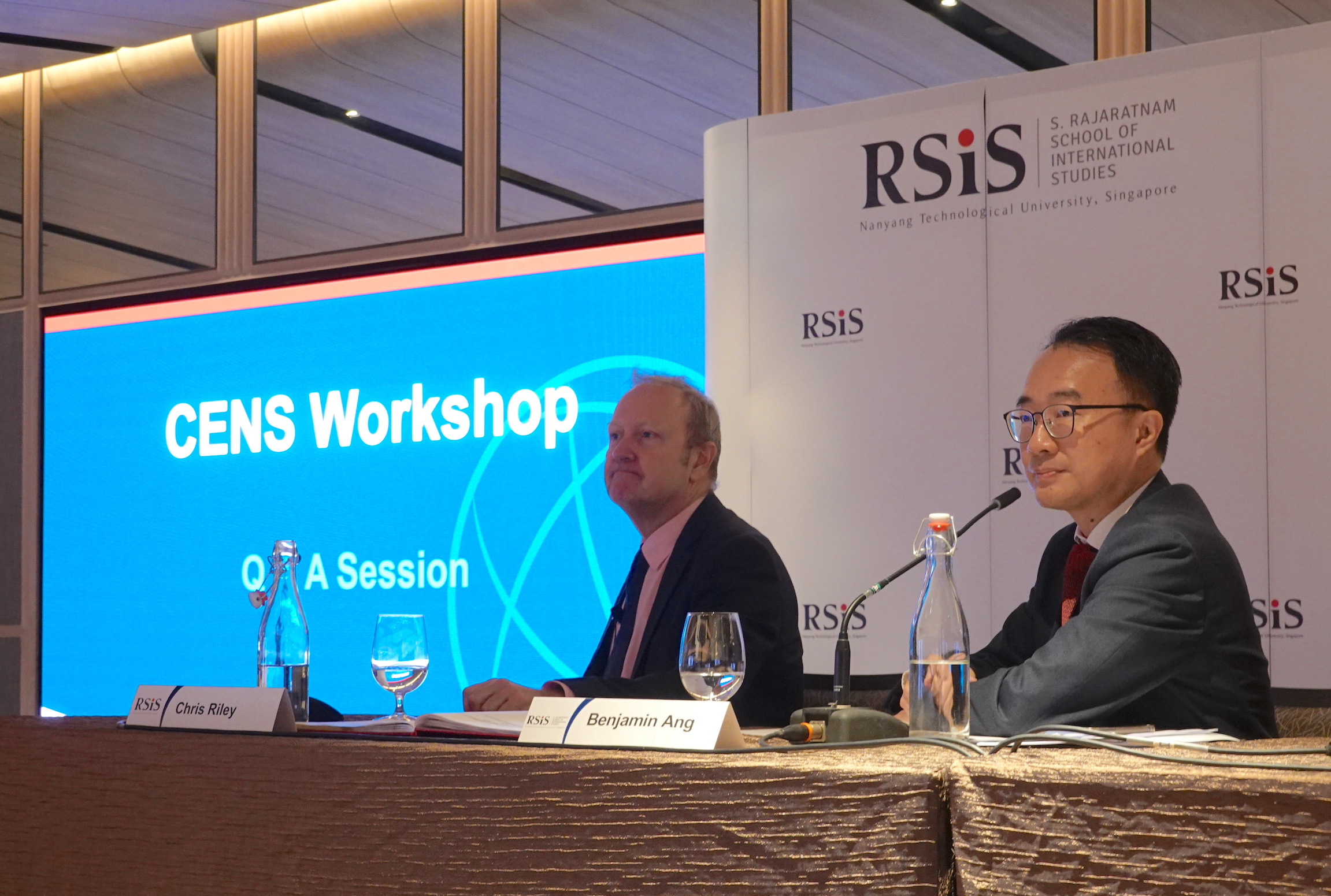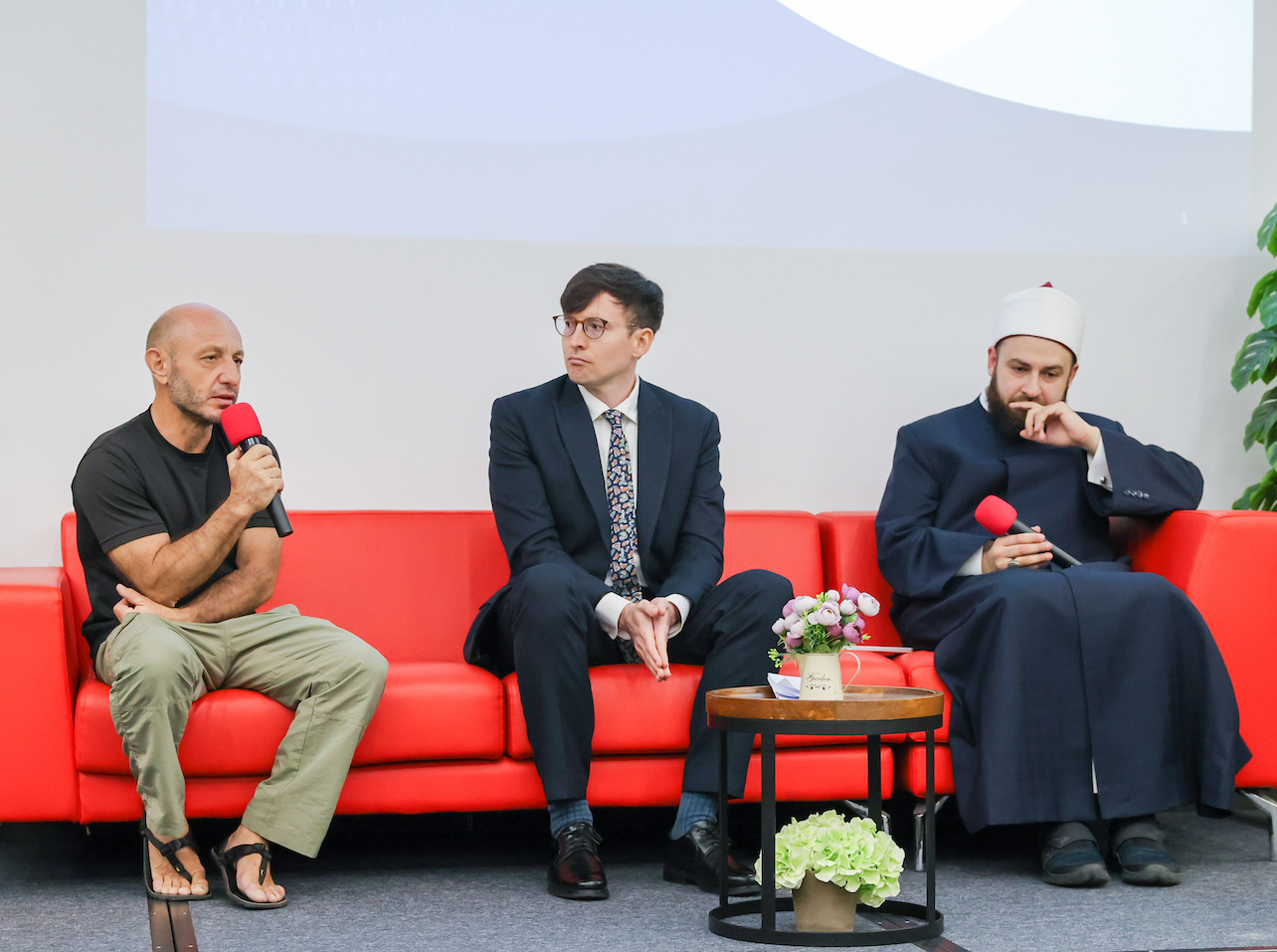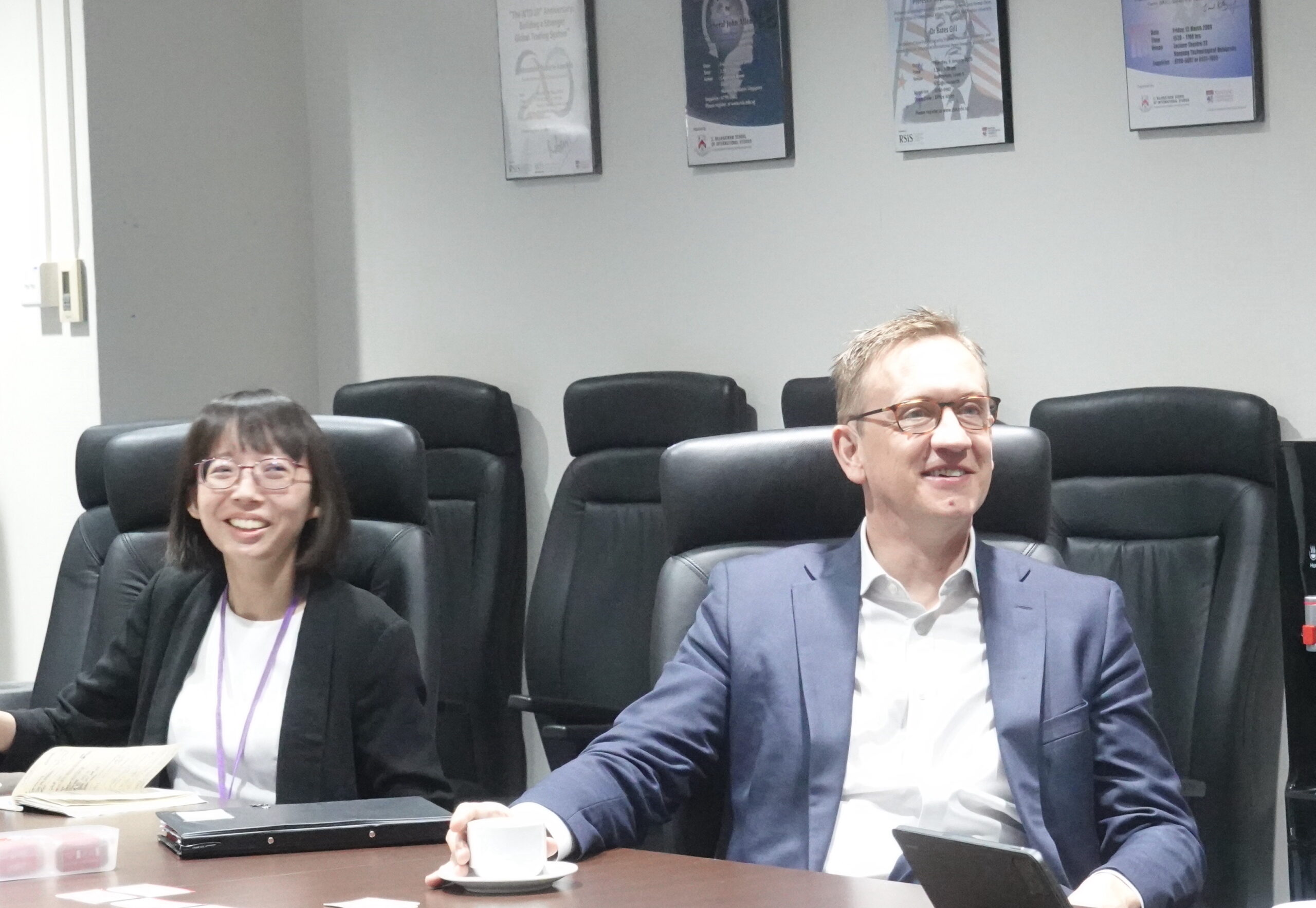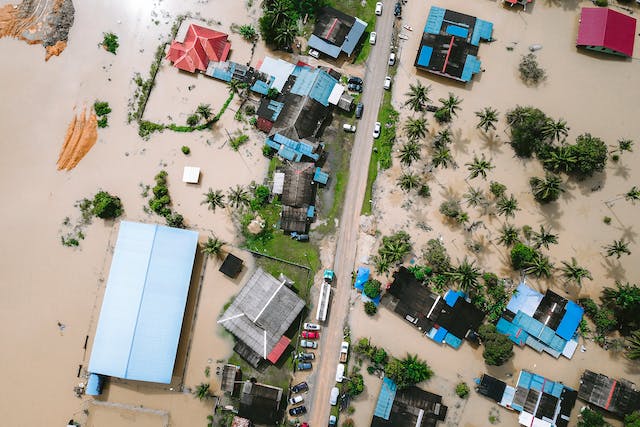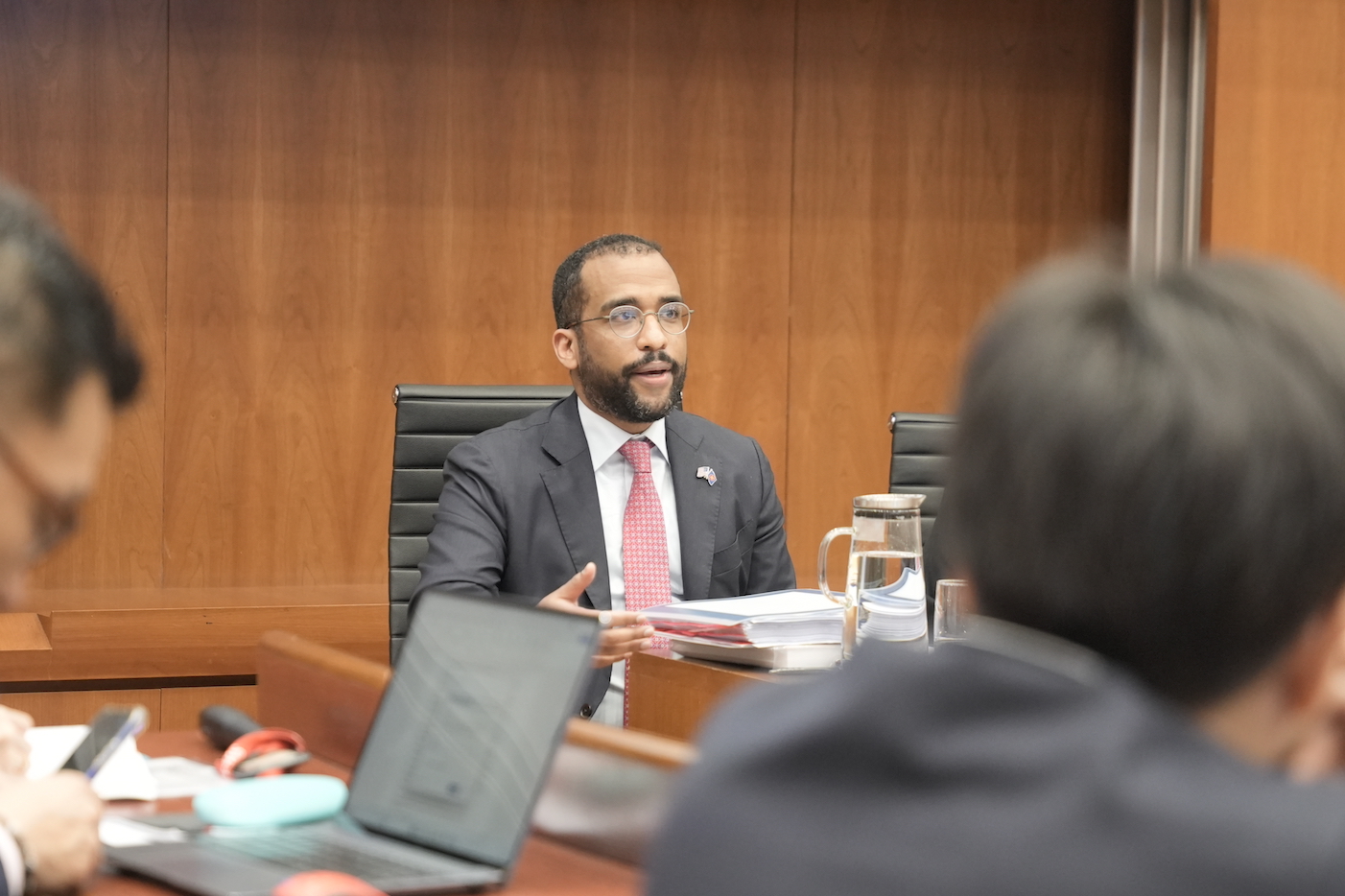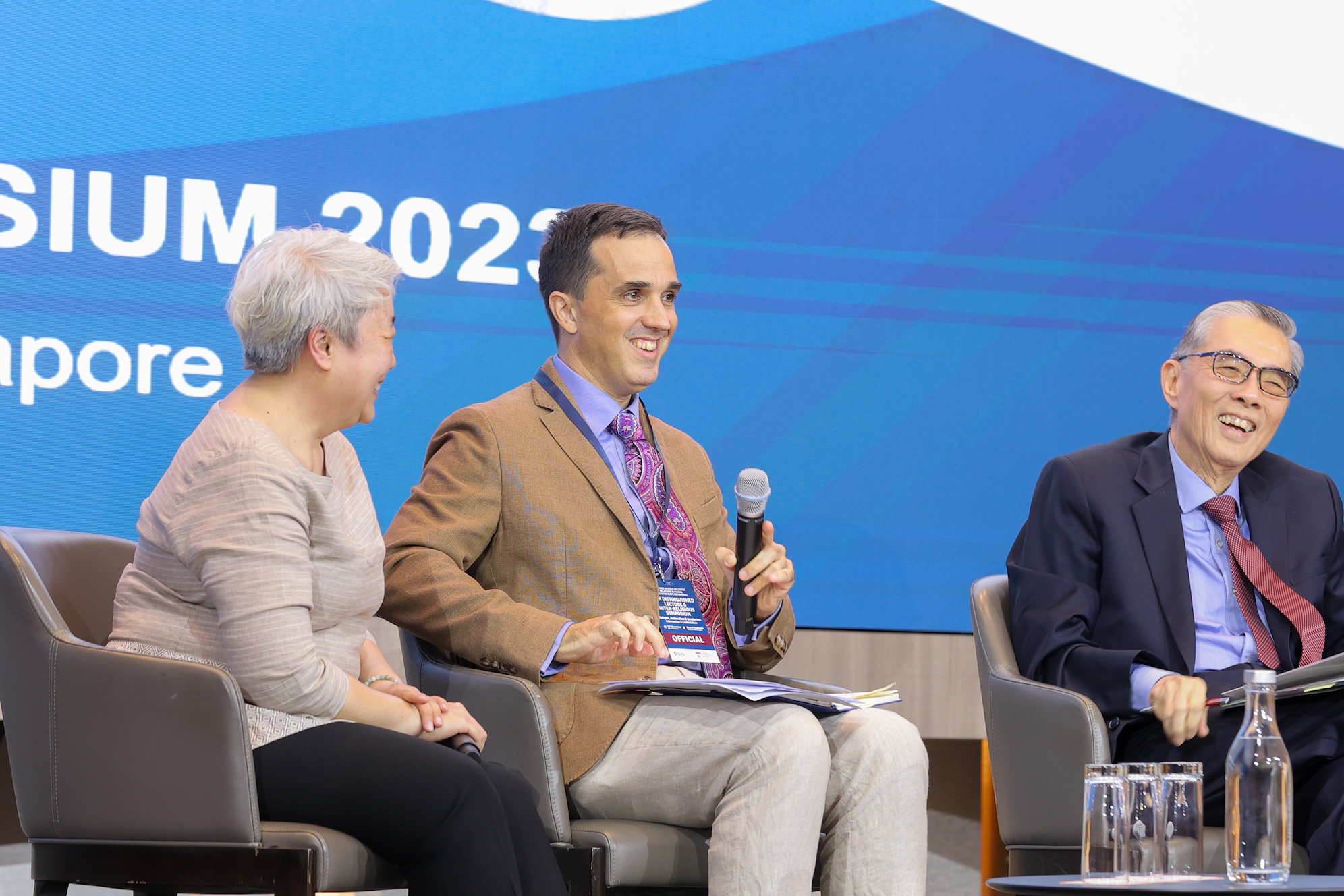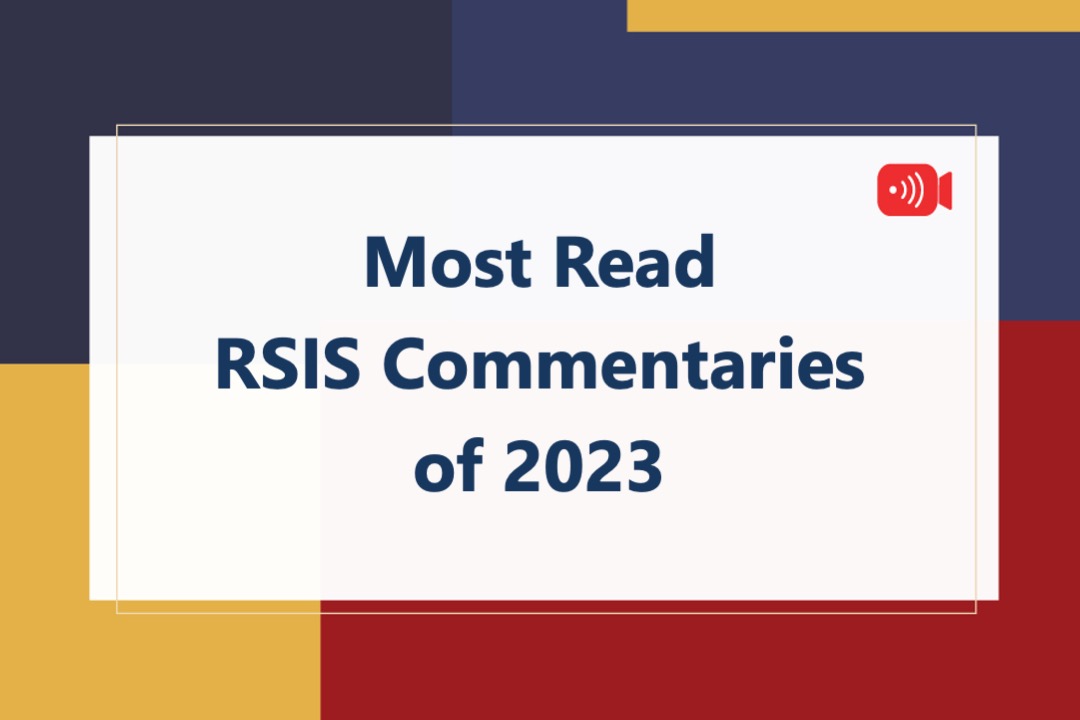
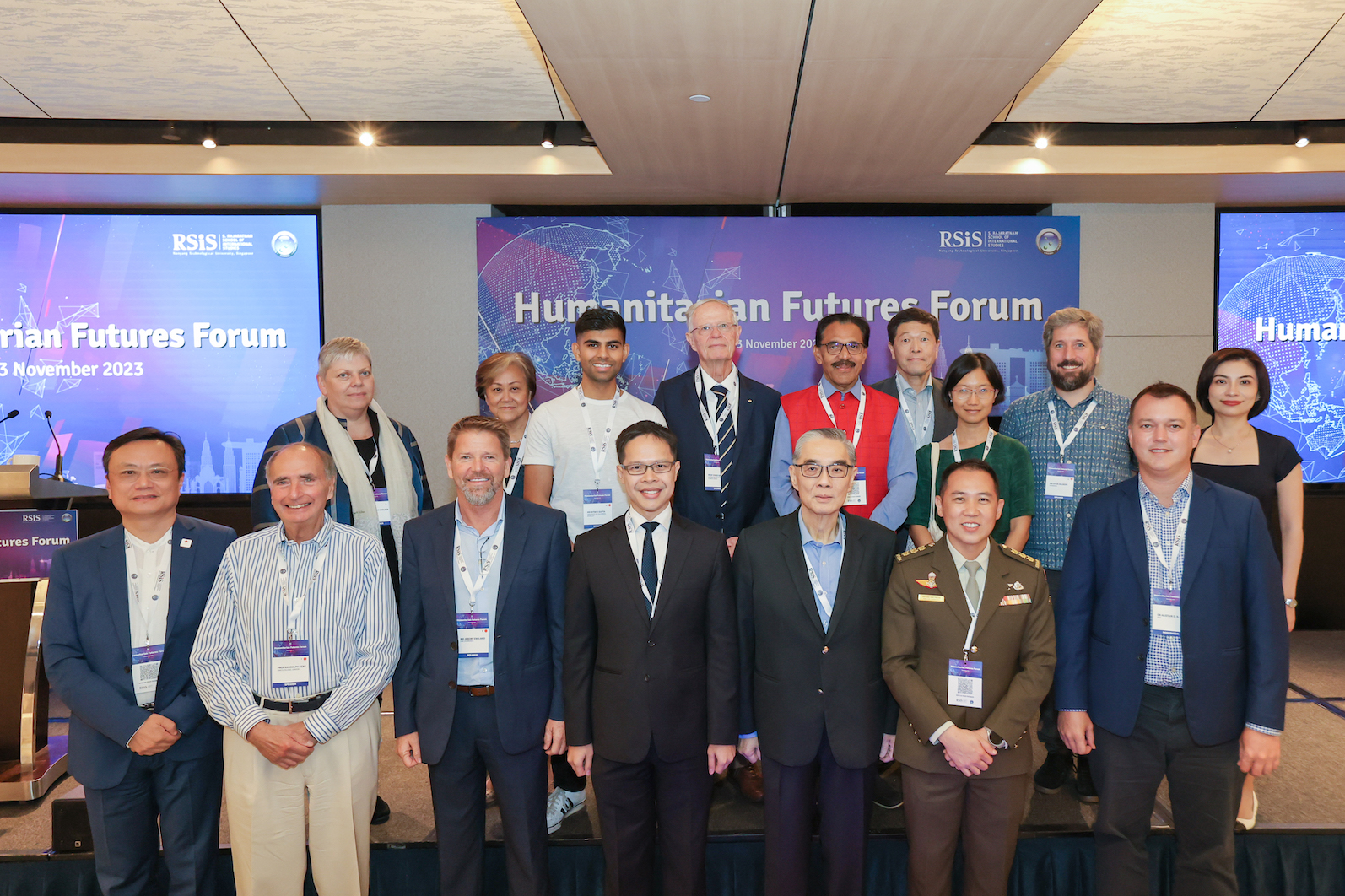
The Humanitarian Assistance and Disaster Relief (HADR) programme, RSIS, and the Changi Regional HADR Coordination Centre (RHCC) jointly organised the 2nd Humanitarian Futures Forum. This forum, held on 3 November 2023, was aimed at strengthening support systems for decision makers and policy planners on ways to better prepare for and respond to humanitarian challenges in this decade and beyond. The Humanitarian Futures Forum was the second iteration of a series of events focused on humanitarian futures in various formats during the COVID-19 pandemic.
The 2nd Humanitarian Futures Forum opened with welcome remarks from Colonel Freddie Tan, Director of RHCC, who spoke on the increasing need for countries in the region to increase their ability to anticipate and adapt to climate change and other looming crises as a result of rising geopolitical tensions. The keynote address was then delivered by Dr Catherine Bragg, Former UN Assistant Secretary-General and Deputy Emergency Relief Coordinator. In her address, she highlighted three aspects of futures thinking: known trends which have already been anticipated by experts, known unknowns which refer to trends which have been anticipated but the scale unknown, and unknown unknowns which refer to trends which are not anticipated at all.
The first panel on “Strategic Foresight in Humanitarian Affairs” brought together Professor Randolph Kent, Former Director of the Humanitarian Futures Programme in King’s College London, Ms Janet Lim, Former Assistant High Commissioner for UNHCR, and Brigadier-General Ng Pak Shun, Group Chief, Policy and Strategy/Group Chief, Plans and Transformation from the Ministry of Defence in Singapore. Moderated by Dr Alistair Cook, Senior Fellow and Coordinator of the HADR Programme, RSIS, they discussed the importance of strategic foresight for the humanitarian community and defined “humanitarian futures” and its broader relevance for various sectors.
The second panel focused on “Frontiers in Civil-Military Partnerships in Disasters” and was moderated by Dr Lina Gong, Research Fellow in the HADR Programme, RSIS. Speakers provided a multi-stakeholder perspective on the need for civil-military relations to evolve in the face of existing and intensifying geo-political tensions. The speakers for this panel included Admiral (Retired) Chris Barrie, Former Chief of Defence Force, Australia; Dr PM Nair, Former Head of the National Disaster Response Force, India; Dr Rahmawati Husein, Vice Chair, Muhammadiyah Disaster Management Center, Indonesia; and Professor Hideshi Tokuchi, Former (First) Vice-Minister of Defense for International Affairs, Japan.
The third panel on “Humanitarian Diplomacy in the Asia-Pacific” was moderated by Dr Alistair Cook. The speakers on this panel were Dr Guo Yang, Deputy Secretary-General of China Red Cross Foundation, Mr Jeremy England, Former Head of Delegation, ICRC; Ms Isabelle Carlsen, OCHA Head of Office in Afghanistan, and Ambassador Ong Keng Yong, Executive Deputy Chairman, RSIS. They discussed the need for humanitarian diplomacy to adapt to future challenges, and the challenges of fostering trust and compromise amidst a trust-deficit environment.
Moderated by Dr Lina Gong, the last panel on “Navigating the Information Landscape in Disasters and Crises” brought together speakers including Ms Philomena Gnanapragasam, Director of Asia-Pacific Institute for Broadcasting Development, Mr Ritwik Gupta, Advisor in AI Policy, US Department of Justice; Mr Stijn Aelbers, Senior Humanitarian Advisor at Internews Network, and Dr Xu Shiling, Lecturer of Humanitarian Policy, International Academy of the Red Cross & Red Crescent in Soochow University, China. They discussed the challenges faced by humanitarian actors in current and future information landscape including the increasing speed and amount of information, the need to differentiate between real and fake, as well as the role of trust. Finally, Amb Ong concluded the forum by delivering the closing remarks. During his remarks, he emphasised the importance of holding on to hope in times of continuous crises, and the need to use practical solutions to help those affected during humanitarian disasters.
The aim of the forum was to inform humanitarian preparedness, planning, and response to crises in our immediate and long-term future. As such, the forum brought together over 130 participants and speakers from various sectors including the military, civilian government agencies, academia, private sector, philanthropic entities, local civil society as well as international NGOs and international organisations. Through the course of the one-day event, participants and speakers shared their experiences and overall, contributed towards the development of an anticipatory, adaptive, and innovative humanitarian sector in the region.




